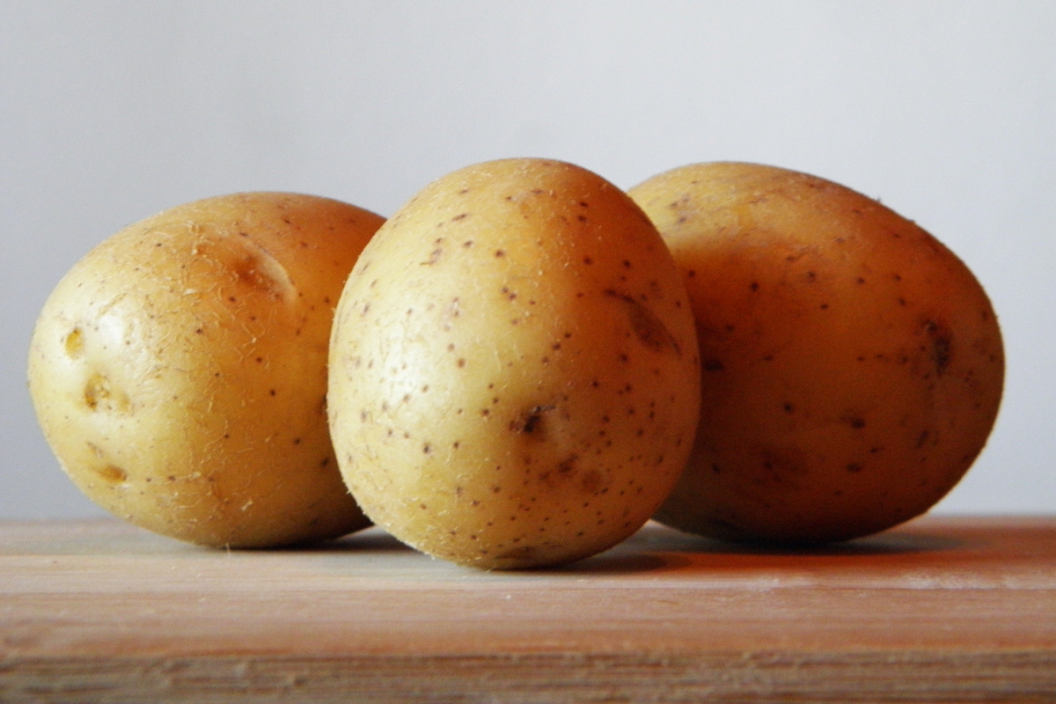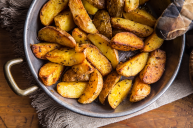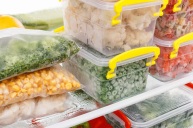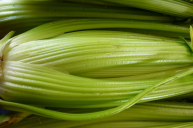One of the great things about potatoes is that, stored correctly, they last a fairly long time. But if you buy 10 pounds of potatoes, you might not be able to cook them all before they start to sprout (of course, if that happens, you could just plant them). Fortunately, you can freeze cooked potatoes or uncooked potatoes. You can freeze any kind of potato, including russets, Yukon Gold, red potatoes and sweet potatoes. Freezing potatoes can help save cooking time, too. So grab a bunch of spuds and get ready to do some easy prep work to stock your freezer.
Freezing raw potatoes
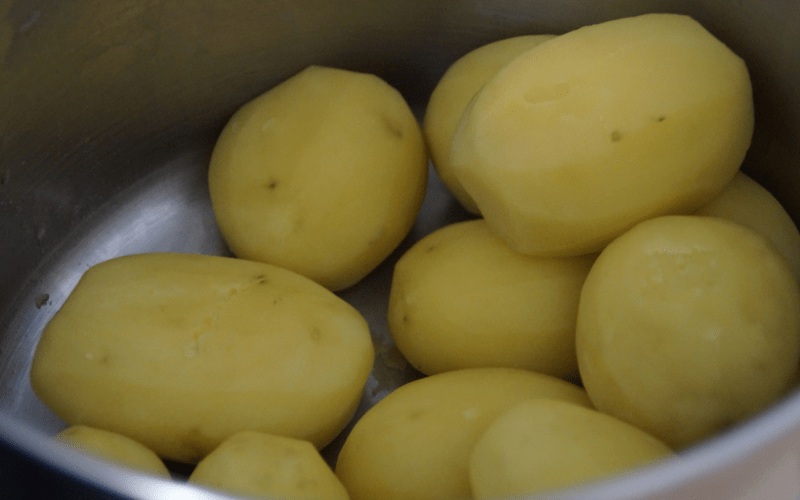
Potatoes contain a lot of water, so there's one critical step to keeping your frozen potatoes from turning mushy when they're defrosted. But first, scrub your potatoes and cut off any bad spots. You can leave the peel on or not.
Next, cut up the potatoes. You can also freeze whole potatoes, but if you're making french fries, roasted potatoes, or hash browns, pre-cut potatoes make things a whole lot easier on the cooking end. So, cut into chunks, wedges or sticks, or shred them.
Then comes the important part. Potatoes need to be partially cooked before getting stashed in the freezer. Blanching the potatoes before freezing will maintain the texture, plus it actually saves you time and effort when you cook them. You can cook the potatoes straight from the freezer, and they won't need as much time to cook.
To blanch the potatoes, place them in a pot of boiling water. Cook the potatoes for 2-3 minutes, though if you're freezing large wedges or whole potatoes, you may need another minute or two. You don't want the potato to be cooked all the way through, but it should be a little tender.
Remove the potatoes with a slotted spoon and place them immediately into a large bowl of ice water to stop the cooking process. Drain the cold water, pat the potatoes dry with paper towels and cool to room temperature. Once the potatoes are dry, you can toss them in a little bit of olive oil or vegetable oil. Cover a baking sheet with parchment paper, then lay the potatoes in a single layer on the pan and stick the pan in the freezer. Once the potatoes are frozen, place them in a plastic bag or freezer bag and keep them stashed in the freezer for up to six months.
When you're ready to use your frozen potatoes, the best way to defrost them is in the refrigerator. But unless you're mixing them into another recipe or using them for something like potato salad, you can cook your frozen potatoes without thawing them. Drop them in the oven or air fryer or skillet and add a minute or two of cooking time. Be careful if you're cooking the frozen potatoes in oil.
Freezing cooked potatoes
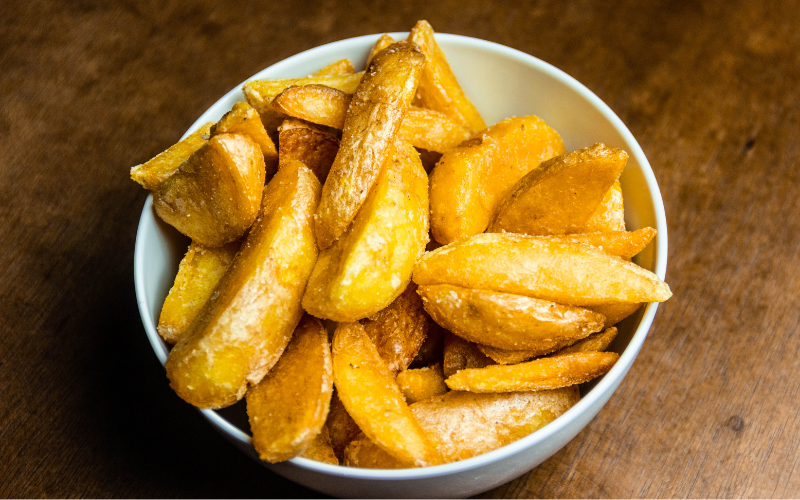
You can freeze completely cooked potatoes, too. To freeze leftover french fries, let them cool completely and then place them in a freezer bag or airtight container and freeze. You'll want to eat them within a month. You can defrost in the refrigerator and then reheat in the microwave, but you can also spread them still frozen on a baking sheet and reheat in your oven. (Pro tip: a toaster oven is an excellent way to reheat a small serving of frozen fries and get them nice and crispy.)
For mashed potatoes, scoop the cooked potatoes into patties and place them on a baking sheet. It's okay to freeze mashed potatoes with all the add-ins, too - the sour cream, butter, or cream helps to preserve the texture. Once the patties are frozen, place them in a freezer bag or airtight container. Use within a month, and defrost in the refrigerator before reheating.
To freeze baked potatoes, it's best to cut the potatoes in half and scoop the potatoes out of each half, mash the potato and place it back in the skin. It's even better if you add sour cream or butter to help keep the texture. Wrap the potato tightly in plastic wrap and freeze. Use within a few weeks, and defrost in the refrigerator or reheat in the oven straight from the freezer.
This post was originally published on January 22, 2021.
